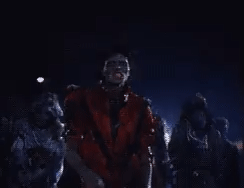E-Pluribus | November 8, 2022
A new -ocracy: Cacophonocracy; science takes more fire from the left; "diversity" doesn't mean the same thing to everyone.
A round-up of the latest and best writing and musings on the rise of illiberalism in the public discourse:
George Case: Cacophonocracy
While clearly there is no going back to a simpler, quieter, slower world, George Case writing at Quillette says that the noise of communication overload is not just an annoyance but has become an impediment to good and useful communication to accomplish worthwhile societal and political ends.
Much of what comes to us as news is just basically information about other information: not the proverbial five-W descriptions of “Man Bites Dog,” but “Government’s Dog-Bite Numbers Don’t Add Up, Says Our Expert”; or “One-Third of All Men Would Bite Dogs: Poll”; or “Dog-Biting By Men: Last Year’s Thing?”; or “Top Ten Reasons Everything You’ve Heard About the Dog-Biting-Men Narrative Is Wrong.” A lot of this falls under the category of so-called pearl-clutching, where opposing camps opportunistically profess shock and dismay over some petty affront committed by their adversaries. In other instances, though, it’s the news that does the pearl-clutching on the news readers’ behalf, digging up mites of indignation in order to keep us upset and logged on. Unlike Marshall McLuhan’s global village, the effect is of being in a global school yard or hair salon where a gaggle of bored troublemakers whisper dirt all day—Did you hear what she had the unmitigated gall to say to him? Can you believe what they said about it? Don’t listen to those big mouths, let me give you the real scoop! Wait till I tell you, you’ll simply die when you find out! “Demanding more than the world can give us,” Daniel Boorstin summed up in 1962, “we require that something be fabricated in order to make up for the world’s deficiency.”
Across 50 or 60 years, then, the recurring implication has been that advertising, style, show business, and raw sensation are not just commercial ephemera but as meaningful as new laws or scientific discoveries, and can be reported as such. The hard line between incoming bulletin and puff-piece has evaporated. Combine that with legacy media’s increasingly desperate rearguard defense of its own mission (“Democracy Dies In Darkness,” vows the Washington Post’s webpage slogan, over headlines like “On TikTok, Instant Fame Often Comes with a Price” and “9 Highly Anticipated Book Adaptations Are Coming to Big and Small Screens”) and the result has been termed the epistemic crisis, or a regime I’d label cacophonocracy: rule by discord.
Read it all.
Luana Maroja: An Existential Threat to Doing Good Science
The right (and particularly the religious right) often takes the brunt of the criticism for being “anti-science.” In recent years, however, even some on the left have acknowledge a growing penchant on their own side for subjugating science to social or cultural concerns. Writing at Bari Weiss’s Common Sense, evolutionary biologist Luana Maroja gives an insider’s perspective on this growing threat.
The restriction of academic freedom comes in two forms: what we teach and what we research.
Let’s start with teaching. I need to emphasize that this is not hypothetical. The censorious, fearful climate is already affecting the content of what we teach.
One of the most fundamental rules of biology from plants to humans is that the sexes are defined by the size of their gametes—that is, their reproductive cells. Large gametes occur in females; small gametes in males. In humans, an egg is 10 million times bigger than a sperm. There is zero overlap. It is a full binary.
But in some biology 101 classes, teachers are telling students that sexes—not gender, sex—are on a continuum. At least one college I know teaches with the “gender unicorn” and informs students that it is bigoted to think that humans come in two distinct and discrete sexes.
[ . . . ]
Let’s move on to the stifling of research. Some grants focus almost exclusively on identity, as federal agencies, such as the National Science Foundation, now offer a surplus of grants with the purpose of “broadening the participation of members of groups that are . . . currently underrepresented”—instead of funding research to answer scientific questions.
But the field that is most directly affected is research related to humans, especially those dealing with evolution of populations.
Read the whole thing.
Diane Yap: The Educational Benefits of “Diversity”
Cases before the Supreme Court have put the spotlight on affirmative action in general and at Harvard in particular. At City Journal, the Manhattan Institute’s Diane Yap examines Harvard’s policies and concludes that what passes for seeking “diversity” at the Ivy League giant is nothing short of “racial balancing.”
It’s worth examining the meaning of the word “diversity” in the context of college admissions. My Manhattan Institute colleague Renu Mukherjee has shown that at Harvard, little viewpoint diversity exists—the very type of diversity that has been shown to enable creative problem-solving, among other benefits. In fact, as Mukherjee noted, fewer than half of Harvard students polled felt comfortable expressing dissenting views during class.
At highly selective colleges, achieving diversity in practice often means enforcing an artificial cap on Asian enrollment in favor of admitting less-qualified applicants of “underrepresented” races. Admissions officials do this by giving eye-popping advantages to applicants just for being born as one of the favored races in an increasingly unpopular and legally contested policy known as affirmative action. In his expert witness testimony against Harvard, economist Peter Arcidiacono estimated that an Asian male with a 25 percent chance of admission would have a 95 percent chance if he could just check the “African-American” box instead. Nothing else about him would have to change to receive these dramatically improved odds. This type of disparate treatment based on race is all too common in elite college admissions.
One can find little evidence for the educational benefits of diversity that isn’t based on self-reported attitudes.
Read it all here.
Around Twitter
What’s scarier than Michael Jackson’s Thriller? How about the phrase “cultural appropriation investigation”?
A short thread from the Free Beacon’s Aaron Sibarium on a new innovation - financial deals with banks to improve “diversity”:
And finally, on this election day, a reminder from David French about defamation - “free speech” isn’t a free pass:











